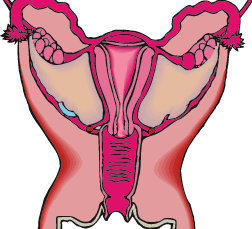







Polycystic Ovary Syndrome (PCOS) is an unheard of but common condition that effects many healthy women. The big question is what is PCOS and what are the symptoms?
PCOS is the most common hormone disorder but unknown to a lot of women sufferers. PCOS is a condition that may mean that a sufferer has small cysts on their ovaries, which can give symptoms such as irregular or non-existent periods, excess bodily hair, weight gain, acne and more seriously in severe cases infertility and cancer of the uterus.
Although results from studies in PCOS have shown that out of 20% of women scanned for PCOS only 7% had symptoms.
The causes of PCOS are usually inherited; there are no specific causes such as ill health that make a person more susceptible to the condition.
Hormones can play a part in the causes of PCOS. The way doctors suspect PCOS is if there is a rise of the luteinizing hormone (LH) and prolactin. The LH in the blood has to be raised in a ratio of 3:1%. Because of this raise testosterone and LH cannot peak to stimulate the oestrogen to release the egg.
If the symptoms listed are familiar the doctor should be informed. From this a blood test will be carried out to check hormone levels. If the levels are high an ultra sound is the next stage to see if there are cysts on the ovaries, as not all PCOS sufferers have cysts. To be diagnosed with PCOS you have to have more than 10 cysts on your ovaries.
The female reproductive system. After an ultrasound is carried out to see the extent of the problem treatment can be discussed.
Usually with young women without many symptoms the combined oral contraception pill is prescribed, as this is a good way of regulating periods. Those who have excess bodily hair are more likely to be prescribed Dianette, which is also a contraceptive pill.
If a sufferer would like to start a family the drug Clomaphine will be used to help the process.
Another remedy of PCOS, in advanced cases is laser treatment on the cysts, which will cause them to disappear.
With this condition treatment is very important as the condition can worsen, especially with non-existent periods into cancer of the uterus and infertility.
Warrington Collegiate CHAT nurse manager Sue Coggins said "This is a common and easily treatable condition, the only risk is cancer and infertility if not treated."
In many young women a main concern with PCOS may be weight gain. It is important to stick to a healthy diet when diagnosed with the condition. Weight gain can be fast in some cases excessive. Becoming obese can cause many problems in general and does not help PCOS, as it may result in even more difficulty in conceiving.
Heart problems are also linked to obesity so exercise is an essential part of staying healthy.
Some women experience pelvic pain before being diagnosed. This has been linked to PCOS but so not a result of it.
If you think you may have PCOS see your Doctor to check your symptoms so treatment can be started as soon as possible.
A re-cap of symptoms of PCOS:
Irregular or absent periods
Weight gain
Pelvic pain
Bodily hair
Acne




